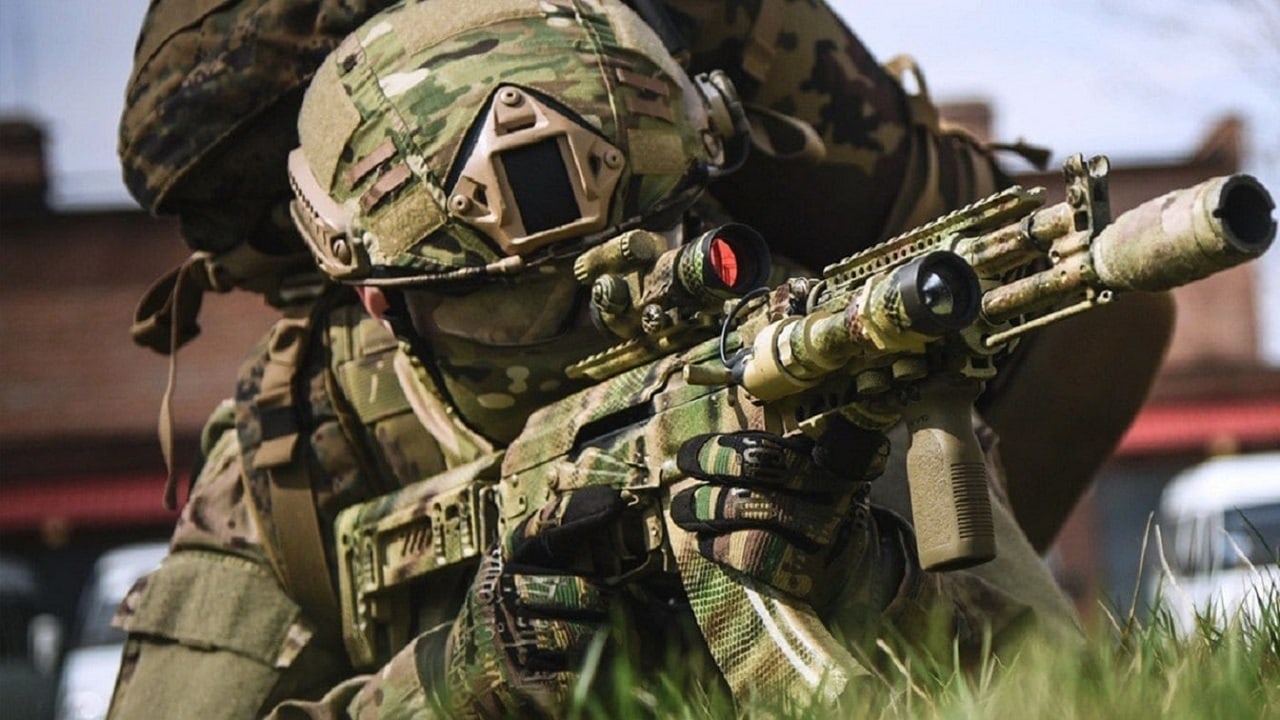A rebellion by one of Russia’s favorite warlords has thrown the entire Russia-Ukraine War into chaos.
Yevgeny Prigozhin, close associate of Vladimir Putin and head of the Wagner private military company, denounced the Russian Ministry of Defense on Friday and ordered his forces to oust the leadership of Russia’s war effort. Wagner forces seized Rostov-on-Don and now appear to be on their way to Moscow.
Signs of Discord
Tensions between Wagner and the regular Russian military have been simmering for a while, with Wagner unhappy about the supply situation and the Russian Army resentful of the public acclaim that Wagner received for its role in the Battle of Bakhmut. The situation erupted earlier this week when Prigozhin accused Russian forces of direct attacks against Wagner’s leadership. On Friday Prigozhin denounced the entire Russian war effort in a rambling address before ordering his men into action.
Prospects
The prospects for the rebellion look grim on the face of things. Wagner doesn’t have nearly the manpower or the equipment of the Russian security forces, even accounting for the substantial elements of the army deployed in Ukraine. Prigozhin cannot yet command airpower for either offensive effect or to defend the movement of his troops. Wagner allies such as General Sergei Surovikin lost little time in denouncing the effort, suggesting that Prigozhin has few allies among the Russian elite.
Moreover, the political objectives of the rebellion remain unclear. Prigozhin’s complaints about the war involved a full-throated denunciation of the motives for the conflict and seemed to leave little political space for continuing the war.
Moreover, Prigozhin was careful to limit his criticism of Putin, instead focusing on lieutenants such as General Valery Gerasimov and Minister of Defence Sergei Shoigu. The venomous nature of Prigozhin’s remarks, however, leave little room for compromise for Russia’s President.
But Wagner has enjoyed some success. The mercenary company seized critical points of Rostov-on-Don, an important center for communications and logistics on the southern portion of the Ukrainian front. It now appears to be advancing towards Moscow without much interference from Russian security forces. Indeed, the Russian state has reacted slowly to the rebellion. Despite having massive and obvious military superiority, the Kremlin has yet to destroy Prigozhin’s advancing column with airpower, or to block its advance along main roads.
After several hours of silence, Putin himself emerged to denounce the rebellion and declare that its leadership would be punished. Even in this the Kremlin walked a fine line, however, trying to maintain the fiction that Wagner and the Russian armed forces could continue to cooperate in fighting against Ukraine.
Uncertainty
Like so much else with this war, what we know is dwarfed at the moment by what we do not know.
We don’t know how much support Prigozhin has within elite political and military circles. Wild rumors of Russian officials fleeing Moscow have spread on Twitter, but there is little to confirm them. We don’t know how the coup will affect Russian military operations in Ukraine.
We absolutely cannot trust most of the information currently coming out of either Russia or Ukraine. For Moscow, Kyiv, and Wagner, information is a tool of statecraft. Prigozhin owns an internet troll factory; the Russian government has plenty of reasons to obscure the situations, and the Ukrainian government has every reason to exaggerate the chaos currently overtaking the Russian national security state, although it’s not obvious that the chaos needs much in the way of exaggeration.
Is Putin in Trouble?
For the first time, Vladimir Putin’s grip on the war effort looks shaky. The decision to elevate Prigozhin was made out of desperation and frustration, with Russian forces either bogged down or in retreat across Ukraine. It was effectively a vote of no confidence in the Russian military establishment, the very people that Putin will now depend upon to keep him in power.
Obviously, if the situation deteriorates further in Russia, it could have a significant impact on the fighting in Ukraine, with Russian forces suffering serious logistical and communications problems, and possibly even seeing some rotations back to the Russian Federation to keep order. The Ukrainians have reacted cautiously thus far to the events, with some indications that they have launched probing attacks on parts of the front but no solid news that they’ve jump-started the broader offensive. Kyiv will be keen to take whatever advantage it can of Russian confusion, both in military and political terms.
It is likely that the Putin regime will fend off this challenge to its authority, although the political impact of the rebellion could reverberate for months or even years. Putin’s catastrophic error in invading Ukraine has now come to directly threaten his grip on power. Unfortunately, none of us know what might come next.
Dr. Robert Farley has taught security and diplomacy courses at the Patterson School since 2005. He received his BS from the University of Oregon in 1997, and his Ph. D. from the University of Washington in 2004. Dr. Farley is the author of Grounded: The Case for Abolishing the United States Air Force (University Press of Kentucky, 2014), the Battleship Book (Wildside, 2016), Patents for Power: Intellectual Property Law and the Diffusion of Military Technology (University of Chicago, 2020), and most recently Waging War with Gold: National Security and the Finance Domain Across the Ages (Lynne Rienner, 2023). He has contributed extensively to a number of journals and magazines, including the National Interest, the Diplomat: APAC, World Politics Review, and the American Prospect. Dr. Farley is also a founder and senior editor of Lawyers, Guns and Money.
From 19FortyFive
Footage Shows World War I Guns Being Used in Ukraine
‘Vacuum Bombs Destroyed’: Ukraine Footage Shows Putin’s Thermobaric Rockets Destroyed
BOOM! Ukraine Video Shows Precision Strike on Russian Air-Defense System

